Home »
Misc »
How to referee a basketball game
How to referee a basketball game
How To Referee Basketball
Home>Sports>Basketball>Basketball How Tos
PreviousNext
Being a basketball referee can be a fun activity in which someone can also make some extra money. There are many important things to consider when you referee a basketball game. To begin with, it is necessary to know all the rules of the game of basketball, and particular rules of games or leagues that one might be refereeing. Second, it is necessary to know when to apply the rules and how to enforce them, treating players, coaches, fans, and other officials with respect and fairness. Also, it is necessary to have the right equipment referees need to use. Let’s start by taking a look at the basics, what referees:
Table of Contents
- What are referees?
- What do referees do?
- How do officials call a foul or violation?
- How to Become a Referee
- Referee Equipment List
What are referees?
Referees are a type of official.![]() They control all aspects of the basketball game. There are six different types of officials.
They control all aspects of the basketball game. There are six different types of officials.
- The Crew Chief (x1)
- The Referees (x2)
- The Official Scorer (x1)
- The Trained Timers (x2)
Depending on the game, the number of officials involved in a basketball game can change, but regardless of how many people are working, they must act together to guarantee that the game goes along smoothly and fair.
What do referees do?
Basketball referees must know all the game’s rules and regulations because they are the ones responsible for enforcing them, keeping the final result fair. Referees must call fouls, check for violations, award scores, and keep the game under control. The team of officials must decide what each member will be responsible for doing during a game, or which area of the court they will center their attention on. Sometimes referees will need the assistance of other officials to decide on a call, and thus they may have to gather and talk about the play.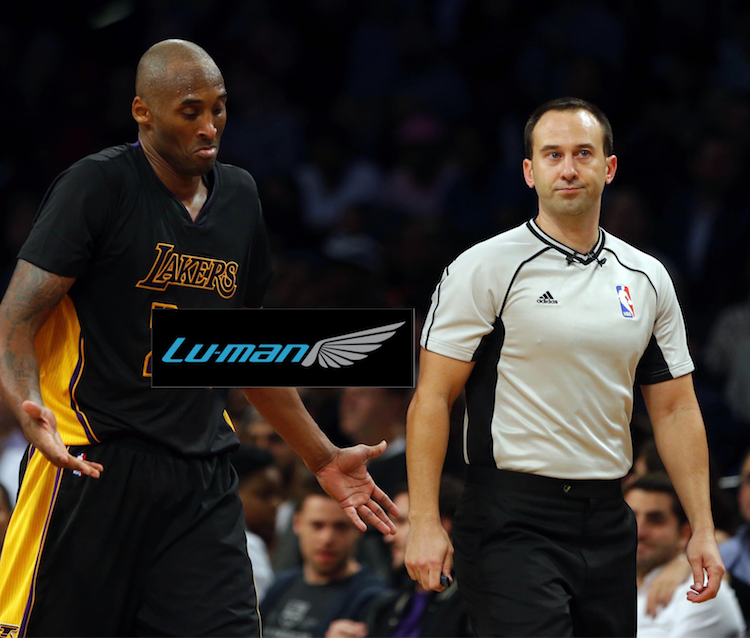 All that is so that the fairest outcome is achieved, and to make sure the game is being played within the rules.
All that is so that the fairest outcome is achieved, and to make sure the game is being played within the rules.
Some of the violations called by referees include:
- Traveling / Walking
- Double Dribble
- Goaltending
- Carrying
- 3-second violation
- 5-second violation
- 10-second violation
- Technical Fouls
- Personal Fouls
How do officials call a foul or violation?
When an official spots a violation, his or her will blow a whistle to indicate that the action must be stopped. Naturally, everyone’s attention will turn to referee who blew the whistle, in this where another part of being a referee comes in; referees must signal what violation was committed and by who. To do that, referees do signals with their hands and arms, therefore, all referees must know the signs, their meaning, and when to do them.
Being a referee is not easy. It is impossible to please everyone or get every call right, so referees will often face confrontation from fans, players, coaches, and even parents. It is important for referees to not let missed calls or complaints influence on other calls throughout the game. If that happens, people start to question decisions more often, the referee loses credibility, and the game becomes chaos, because players and coaches of both sides will be talking too much to referee. To not let that happen, referees must make every call with confidence, and with a body language that shows that. Even if referees are not sure if a call they made was actually the right one, they gotta act as if they were 100% certain, not giving players and coaches room to complain more than necessary. However, that must be done while keeping composure and respecting everyone involved with the game. If the situation gets out of hand, referees can rely on technical fouls to control the nerves on the court.
It is important for referees to not let missed calls or complaints influence on other calls throughout the game. If that happens, people start to question decisions more often, the referee loses credibility, and the game becomes chaos, because players and coaches of both sides will be talking too much to referee. To not let that happen, referees must make every call with confidence, and with a body language that shows that. Even if referees are not sure if a call they made was actually the right one, they gotta act as if they were 100% certain, not giving players and coaches room to complain more than necessary. However, that must be done while keeping composure and respecting everyone involved with the game. If the situation gets out of hand, referees can rely on technical fouls to control the nerves on the court.
How to Become a Referee
Referees are required in basketball games of all levels, without them there is no organized basketball. Regardless of the level of basketball you want to referee (youth, college, NBA), you have to start from the bottom.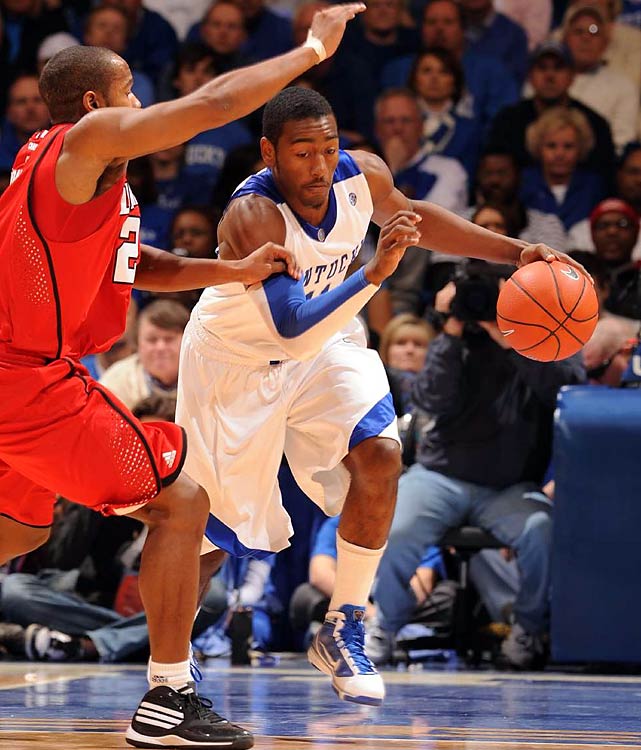 Many recreational centers require referees to youth games, and that is a good place to start. A good idea is also to become a member of the National Association of Sport Officials, they do trainings and can certainly help you become a better referee. Starting from the bottom, you can work your way until becoming a full-time referee for the NBA, or simply have some fun officiating local high school games.
Many recreational centers require referees to youth games, and that is a good place to start. A good idea is also to become a member of the National Association of Sport Officials, they do trainings and can certainly help you become a better referee. Starting from the bottom, you can work your way until becoming a full-time referee for the NBA, or simply have some fun officiating local high school games.
Referee Equipment List
There are quite a few pieces of equipment that basketball referees must have in order to do their job. Take a look at them here:
- Black athletic shoes
- Black athletic socks
- Black beltless slacks
- Striped black and white shirt
- Good, loud whistle
PRO TIP: When purchasing your equipment, remember that you are going to be running and sweating while working, so buy comfortable and light clothes.
PreviousNext
Pages Related to How To Referee Basketball
- How To Shoot With Power
- American Basketball Association
- How To Play Basketball Free Throw Golf
- How To Play Basketball Pickup Games
- How To Play Basketball Outside
- Basketball Leagues
PreviousNext
How To Referee A Basketball Game
Being a basketball referee takes time, patience, and a great understanding of the game.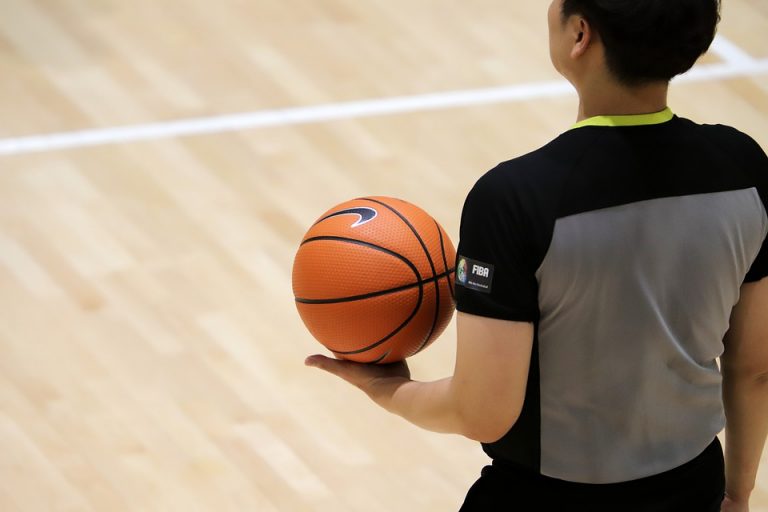 Sure, anyone with a little knowledge can call the local Friday evening game at the public court but to officially call a game of ball you will need to go through a few more steps. Knowing how to referee a basketball game properly will allow you to get further in your desired career and will make you a better official when it comes to the way players think of you. After all, to have teams listen to you, they must respect you and your authority.
Sure, anyone with a little knowledge can call the local Friday evening game at the public court but to officially call a game of ball you will need to go through a few more steps. Knowing how to referee a basketball game properly will allow you to get further in your desired career and will make you a better official when it comes to the way players think of you. After all, to have teams listen to you, they must respect you and your authority.
To be a good referee, you must first learn what it takes to officiate a basketball game. The physical aspect is one of the most overlooked aspects of officiating and is what makes many newcomer referees quit. Some of the other very important aspects of this line of work is being objective and fair to both teams, control the game and its players, and keep their safety your number one priority. You have to be the figure of authority on the court and should act with confidence. Remember to always be impartial and never act on your emotions.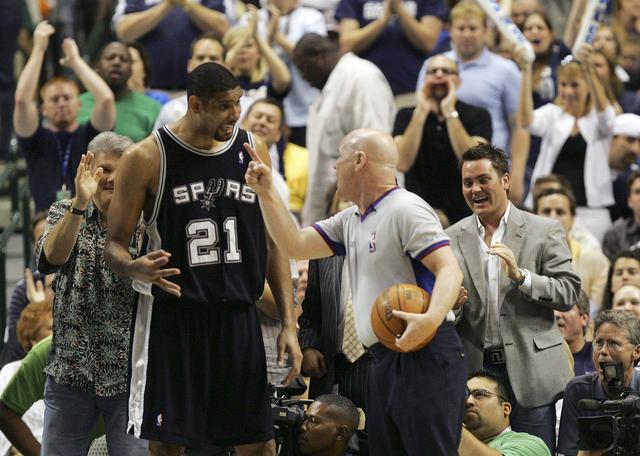
Here, I will teach you some of the key points of officiating basketball games and what you need to keep in mind throughout the games you call. There are specific requirements and steps you have to go through to officially be a ref in basketball and I’ve pointed some of those out in the Related Questions sections of this article. Now, let’s dive into what it actually takes to become a ref and do your job well.
Table of Contents
What It Takes
Before you actually decide that you want to referee basketball games, there are things you need to consider and keep in mind. Those are:
- The physical demands
- The mental demands
- Ref training
- Needed items
- Fees, certification, and income
In terms of physical demands, you shouldn’t overlook this. Calling a basketball game can be as tiring as it is playing the game, even more. Officials are constantly moving and there aren’t any windows in which you can rest as you will always have to adjust your position as the players shift theirs.
Fun fact, a basketball referee runs 2-3 miles on average during a game. Never forget to keep proper hydration and eating properly before a game as this will keep you sharp and charged during the whole game.
Mentally, I’d say you get it easier than the physical aspect. There are often 3 referees that constantly change their positions during the game but that also means that your responsibilities also change. You will also be very close to coaches, players, and fans so you will have to learn not to get easily distracted. Focus is the key to good officiating. Verbal criticism is also something that will be flying your way quite often, so learn to ignore it.
To train yourself better, you can join a local officials association where there are often lectures and courses on various topics. They will also most likely help you with the items you will need to have, such as:
- Black referee shoes
- Black socks
- Black Slacks
- V-neck shirt which is striped (black and white stripes)
- Whistle with a lanyard
The last important thing is certification and of course your salary.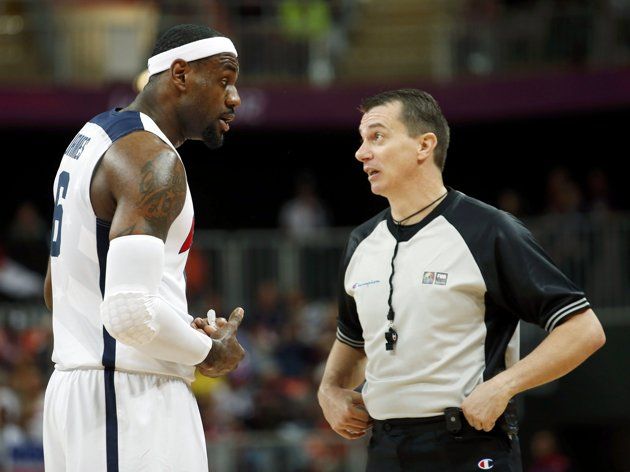 Both those things depend on the level you want to officiate. Usually, refs start from the “bottom” which is Youth Basketball. Later on, they move to High School, then College, and finally professional basketball leagues.
Both those things depend on the level you want to officiate. Usually, refs start from the “bottom” which is Youth Basketball. Later on, they move to High School, then College, and finally professional basketball leagues.
Now, let me share some of the best tips for young referees you can find out there.
Be Confident
When officiating a game, you are the main authority figure out there and you call all the fouls and game violations. This means that you dedicate the flow of the game and not the players or the coaches. This is why you should referee with confidence and let everyone know who is in charge. Blow your whistle firmly and strongly so that everyone knows you mean business and your calls aren’t to be argued. Be loud so that everyone on the court can hear your decisions and calls.
Have Good Positioning
Positioning is vital to a good referee as it is what allows you to see well what exactly is going on. If there are fewer referees at the given game, constantly having a good position is crucial.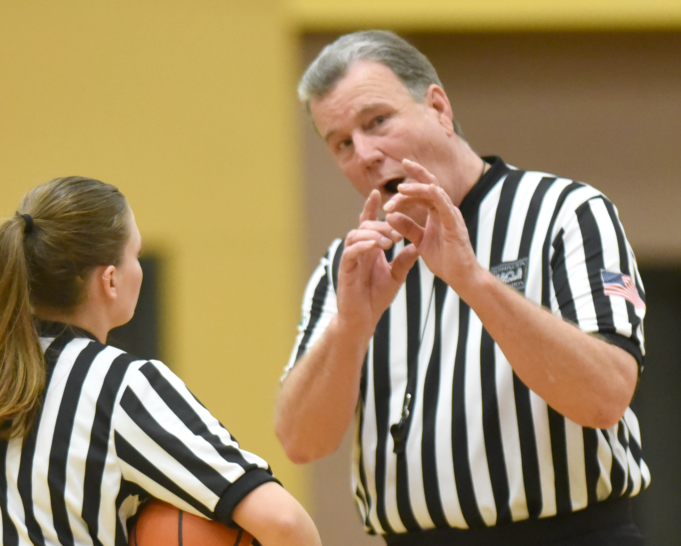 Your tempo should match the one of the players and you should be as fast as them when moving on a rebound.
Your tempo should match the one of the players and you should be as fast as them when moving on a rebound.
Check out how to build a basketball court by clicking here.
Keep Things Under Control
If players get on each other’s nerves by elbowing or pushing each other don’t let this escalate to something worse. Call the foul before it gets ugly. Even if you have to call a technical foul, do it – it is better than having a situation spiral out of control. Timeouts in order to talk to the affected players is also a good idea.
Cover Your Spot
Whenever you are assigned to a position you should stick to it. Don’t follow the ball or the point guard dribbling all over the court – cover your area and focus on whatever is happening there. Officiating is a team effort and the other (or main) referees will sometimes depend on your decision as you would have had a better angle at a given situation.
Communicate
Communication is key when you want to issue the right calls.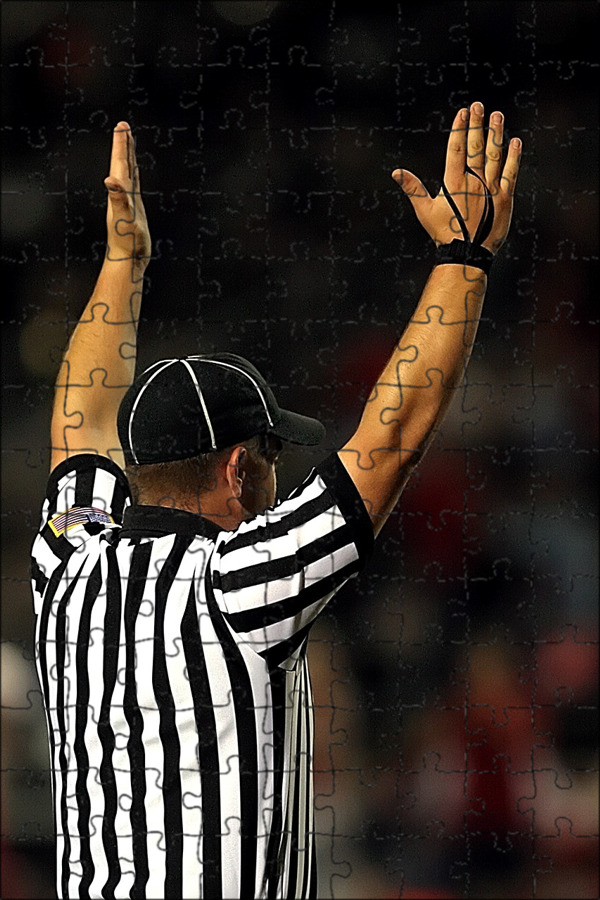 You will earn the players’ respect when you ask your fellow referees about a call you aren’t sure about or didn’t see right. This is why there are more than 1 referees on the court.
You will earn the players’ respect when you ask your fellow referees about a call you aren’t sure about or didn’t see right. This is why there are more than 1 referees on the court.
Whenever a colleague referee makes a call, you should always back him up no matter if you think the call was wrong. If you sure it was, mention that on the next timeout instead of arguing in front of the players. If the error is very obvious, call a timeout and discuss it with the referee that called it.
Be Impartial
No matter which team you like more, you should never side with anyone out on the court. Your job is to be objective and apply the rules to the game in an impartial way without your personal decisions and feeling getting in the way, which brings me to my next tip I want to share:
Don’t Let Your Emotions Control Your Calls
Never view fouls or rules infractions as something personal. Any time you are enforcing a call, be neutral both with your facial expressions and body language. Many referees give in to their emotions and that is conveyed through the tone of their voice or the obvious expressions they do. I get it, fouls can get ugly but your job is to control things on the court and not pick sides.
Many referees give in to their emotions and that is conveyed through the tone of their voice or the obvious expressions they do. I get it, fouls can get ugly but your job is to control things on the court and not pick sides.
Keep Safety A Priority
The player’s safety is your number one priority. As I said, try to quickly defuse dangerous confrontations between players and whenever there is a rough play make sure you send a strong message against it by calling a technical.
You Will Make Mistakes – Never Make Excuses
Nobody is perfect and this is especially valid for referees. Sometimes the angle from which they view the game can be different from the one which is best to call a certain situation thanks to a bad position. Split second decisions taken under pressure can be awfully wrong but this is just a part of the game and the job. No referee is perfect and that cannot be expected even from the NBA officials. Sometimes you will call the wrong call but don’t try to justify it by making it up to either of the teams later on.
There is just one last tip I want to give you, which it seems that nobody else does…
Warm Up!
You are just as active (sometimes even more) than most players so you should take your time to warm up properly before a game. After the game is over and your job is done take your time to properly stretch. Your body isn’t something you can eventually change so take good care of it. An injury in this line of business can not only sideline you but take away your source of income so treat this issue with great caution.
Want to know which are the best portable basketball hoops for your driveway? Check out this full Buyer’s Guide.
Related Questions
How Do You Become A Referee?
In theory, all it takes for you to become a referee is a certification corresponding to the level of basketball you will want to officiate:
- Junior
- High School
- College
- Major leagues
Usually you have to start your way from the bottom and get to the top but if you are very good and have a lot of good recommendations you can get certified for higher leagues from the get-go.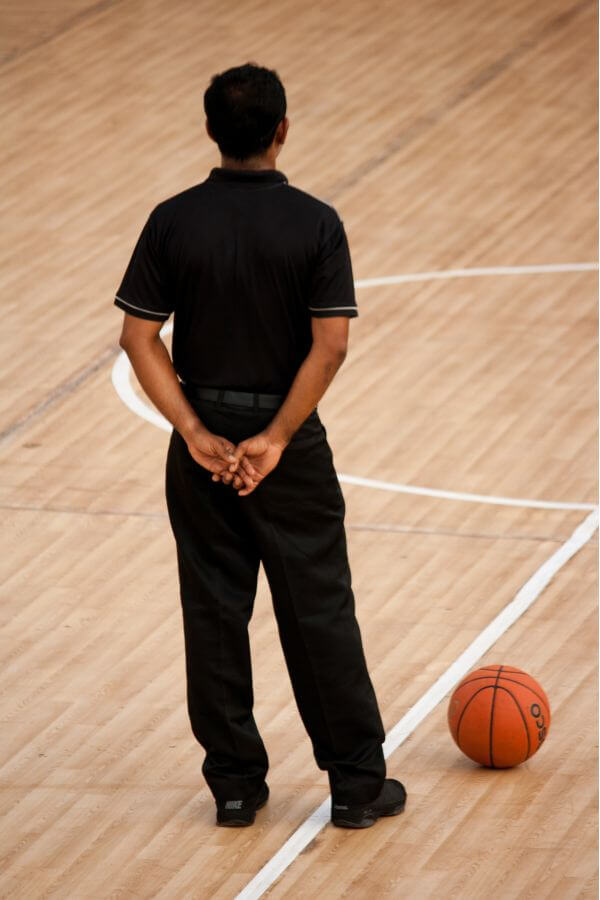
How Old Do You Have To Be To Referee?
In a lot of USA states, you can be as young as 14 to officiate a game. Most high-level games will demand you to be at least 18 and have graduated High School, though. Still, this varies heavily from state to state, so I suggest you check your local requirements instead of taking my word for granted.
Do NBA Refs Get Paid Per Game?
No, the referees in the NBA games are on contract salaries and earn anywhere between 100,000 and 550,000 US dollars per season. A season for a referee includes full 82 games. Women’s basketball referees average around 500 dollars per game, and averagely 16,000 dollars per year which is way lower than what refs do in the NBA.
Final Words
Knowing how to referee a basketball game will make your job far easier. The essentials tips you need for this line of work are the same throughout all the sports and need to be remembered whenever you step out on the court. Once again, your two main qualities should be being confident and impartial.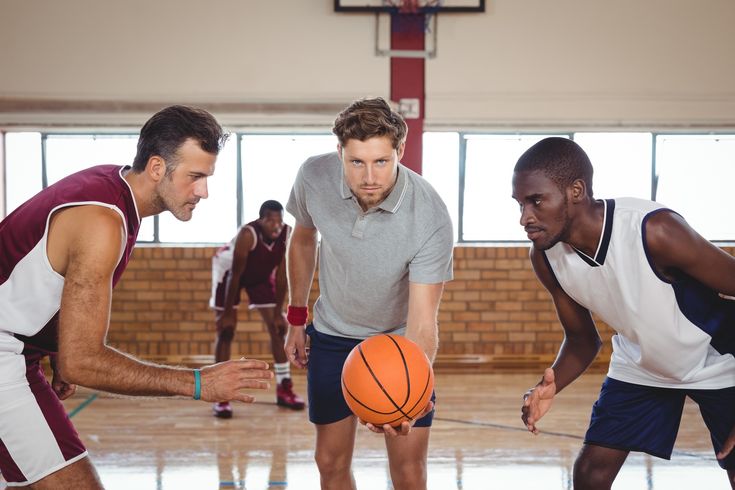 Everything else is just additional steps to being a well-respected and known referee.
Everything else is just additional steps to being a well-respected and known referee.
Summary
Refereeing in basketball
Basketball
-
Historical development
-
Rules
-
Material support
-
Judging
-
Technique
-
Tactics
-
Education and training
-
Choosing a basketball
Basketball: judges on the court and the panel of judges.
Basketball matches are officiated by referees. The brigade consists of experienced judges with a clear knowledge of the rules of refereeing and having many years of experience. Judges are guided not only by the postulates of the prescribed rules. The referee is obliged to use common sense in assessing the situation, taking into account the mood and attitude towards the game by the teams.
It's not right to judge professionals and beginners the same way. Newcomers to the game often make many technical mistakes. Only fixing all such errors will greatly slow down the whole game. The fundamental principles in adjudicating rule violations are the basis for building a cohesive game.
The referee must not pause the game unless clearly necessary. Any aggression and rudeness on the court should be stopped immediately, but a player should not be punished with a foul for unintentional contact, especially if it does not give any advantage in a particular game situation. The integrity and direct course of the game depends on the actions and skills of the referee.
The integrity and direct course of the game depends on the actions and skills of the referee.
The team of referees serving a professional basketball match must include:
Chief referee and site referees.
Two or three referees serve the game to fix errors on the court. They have quite broad powers. The chief referee makes significant decisions on the compliance of equipment, equipment, players' uniforms with the requirements of the rules. In case of serious violations, the Chief Referee may count the defeat. Referees start their duties 20 minutes before the start of the match. During the match, the referees clearly adhere to the rules. The decisions of colleagues are not questioned. The service of the game by the judges on the site is stopped by the sound of the siren.
Secretary and his assistant.
The Secretary is responsible for the correct keeping of the score sheet. Through it, coaches submit applications for participation in the game, containing the data of the players.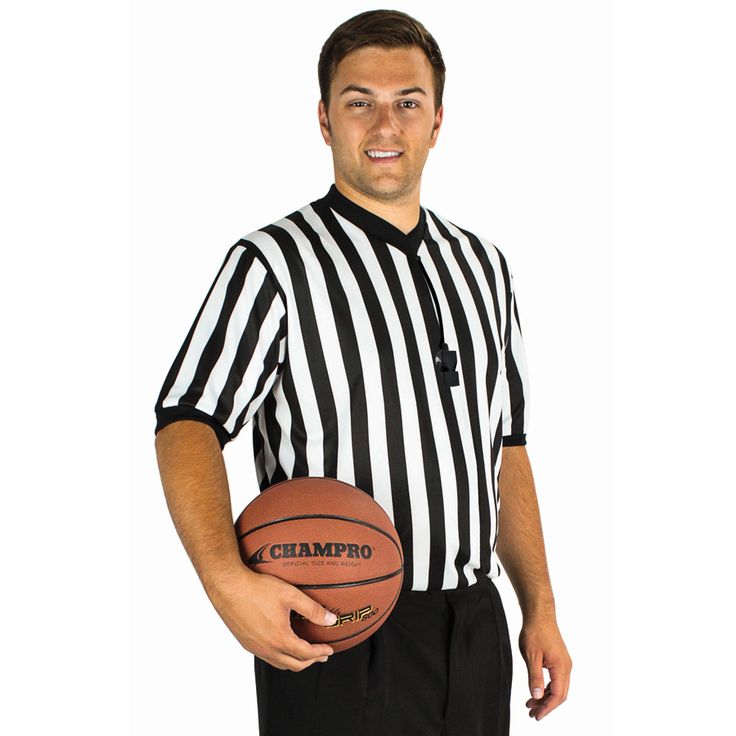 The maximum number of players per team cannot exceed 12 (5 main and 7 substitutes). Fixing the game score, interacting with the teams if a substitution or timeout is necessary, these are the main duties of the Secretary.
The maximum number of players per team cannot exceed 12 (5 main and 7 substitutes). Fixing the game score, interacting with the teams if a substitution or timeout is necessary, these are the main duties of the Secretary.
The scorer can only address the referee in a dead ball situation. Control over the number of fouls is also assigned to the Secretary. He brings this information to the judges and teams.
Timekeeper.
A basketball timekeeper must know the referees' gestures well and know the rules of the game. He is obliged to turn on and stop time on the scoreboard in a timely manner, guided by the gestures of the referees (whistle), as well as independently making a decision when putting the ball into play, declared a time-out, breaks, controversial or free throws. In the last quarter, 2 minutes before the end of playing time, the timekeeper stops the countdown after each effective throw.
Shot clock operator.
The main function of the shot clock operator is to enforce the 24 second time rules.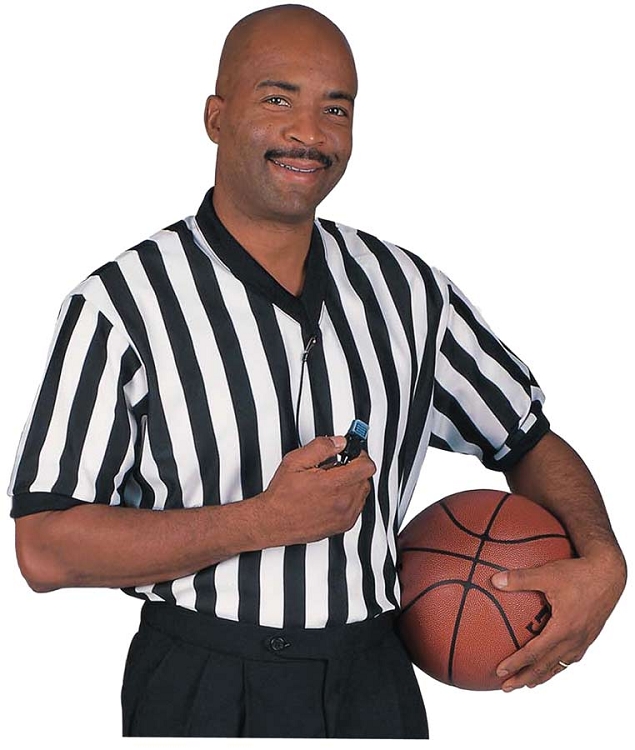 It turns on the timer every time the team gets possession of the ball and turns it off when the ball goes out of bounds. The timer is reset after a successfully completed attack or loss of ball control by the team. The timekeeper must reset the possession time to 14 seconds in a situation where a foul is committed on the team in possession of the ball or the ball is taken by the attacking team after an unsuccessful attempt to hit the ring. In this case, the ball must touch the ring itself, and the stopwatch must have any number less than fourteen seconds.
It turns on the timer every time the team gets possession of the ball and turns it off when the ball goes out of bounds. The timer is reset after a successfully completed attack or loss of ball control by the team. The timekeeper must reset the possession time to 14 seconds in a situation where a foul is committed on the team in possession of the ball or the ball is taken by the attacking team after an unsuccessful attempt to hit the ring. In this case, the ball must touch the ring itself, and the stopwatch must have any number less than fourteen seconds.
The basic gestures of a basketball referee can be divided into groups in order of importance to the player:
Official basketball referee gestures related to infractions
IMPORTANT! These violations result only in the loss of the ball, without any effect on personal and team fouls.
-
Fist rotation - jog
-
Movement of the palms of both hands up and down - double guidance
-
Half rotation of the palm - carrying the ball
-
Finger pointing at the foot - Intentional foot play
-
Front hand swing with two fingers - ball returned to the backcourt
-
Swinging from the bottom up with an outstretched hand with 3 fingers - 3 seconds
-
Show 5 fingers - 3 seconds
-
Show 8 fingers - 8 seconds
-
Finger touching shoulder - 24 seconds
Official basketball referee gestures related to types of fouls
Fouls are punished for an unauthorized action by a player in relation to another individually, as opposed to violations.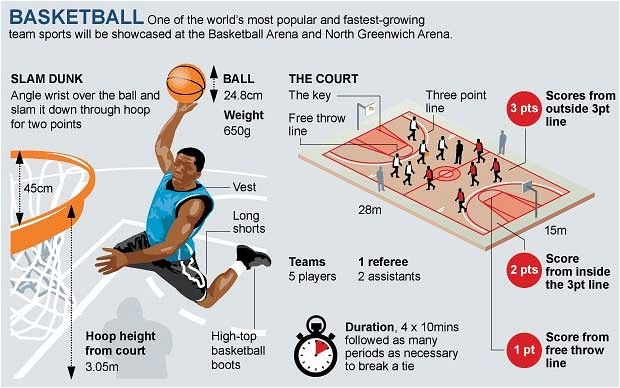
-
Wrist interception below - delay
-
Palm grip and forward movement - hold with hands
-
Both hands on hips - blocking (defensively) or improper screening (offensive)
-
Imitation of pushing - pushing or impinging a player without the ball
-
Wrist hit - misuse of hands
-
Punching to the open hand - Collision of the player with the ball
-
Striking with the hand on the other forearm - incorrect contact in the arm
-
Movement of the elbow to the side - excessive swinging of the elbow
-
The fingers of one hand are clenched into a fist, followed by an indication of the number of free throws - foul in the act of throwing
-
The fingers of one hand are clenched into a fist, followed by an indication of the floor - foul not in the process of throwing
-
Simulated head contact - blow to the head
-
Pointing the fist in the direction of the offending team's basket - foul to the team in control of the ball
Official Basketball Referee Signals, Substitutions and Time Out Signals
-
Crossed forearms in front of the chest - replacement for
-
Wave towards yourself with the palm of the outstretched hand - invitation to the playground
-
Palm and index finger form the letter T - timeout requested
-
Arms to the sides with clenched fists - media timeout
Official Basketball referee gestures, scoring gestures
-
Raised hand raise one finger, lower the hand down - 1 point
-
Raised hand raise two fingers, lower the hand down - 2 points
-
Raised hand with three fingers (attempted throw) or raised both hands with three fingers (successful throw) - 3 points
Official basketball referee gestures, informative gestures
-
Single bringing and spreading of the hands in front of the chest - cancellation of a hit or play action
-
Countdown with open hand movement - Visible Countdown
-
Thumb Up - Interaction
-
Wrist rotation over head with extended index finger - reset shot clock
-
Hand with index finger extended parallel to the touchline - Direction of throw-in and/or throw-in
-
Thumbs up of both hands followed by directions - V-ball or throw situation
Official basketball referee gestures, player numbering gestures
-
Right hand display of numbers from 1 to 5 - from #1 to #5
-
Showing the number 5 with the right hand, and with the left hand from 1 to 5 - from No. 6 to No. 10
6 to No. 10
-
The right hand is clenched into a fist, the left hand shows the numbers from 1 to 5 - from #11 to #15
-
First, showing the number for tens with the outside of the brush, then with the palm of the hand the number 0 for units - 40
-
First, showing the numbers for tens with the outside of the brush, then with the palm of the hand, the numbers for units - 62
Official Basketball Referee Signals, Special Fouls
-
Movement with crossed arms with fists overhead - mutual foul
-
Palms form the letter T - technical foul
-
Interception of the wrist with a clenched fist at the top - unsportsmanlike foul
-
Both hands up with clenched fists - disqualifying foul
Official basketball referee gestures related to the game clock
-
Open palm up - stop watch
-
One fist above head - stop clock on foul
-
Hand down chopping motion - clock activation
Basketball
-
Historical development
-
Rules
-
Material support
-
Judging
-
Technique
-
Tactics
-
Education and training
-
Choosing a basketball
Basketball refereeing rules - online presentation
Similar presentations:
Basketball Refereeing Rules
Basketball Refereeing Rules
Rules of the Game and Refereeing Rules in Basketball
Basketball Refereeing Rules
Basketball. Game rules and refereeing rules
Rules of the Game and Refereeing Rules in Basketball
Rules of the Game and Refereeing Rules in Basketball
Rules of the Game and Refereeing Rules in Basketball
Rules of the Game and Refereeing Rules in Basketball
Rules of the game and rules of refereeing in basketball
Rules of refereeing
of the game “Basketball”
Completed by a student of the ODL group 01-20
Sokolova Ksenia
Judges on the court and the panel of judges.
Basketball matches are officiated by referees. The brigade consists of experienced
with a clear knowledge of the refereeing rules and many years of experience.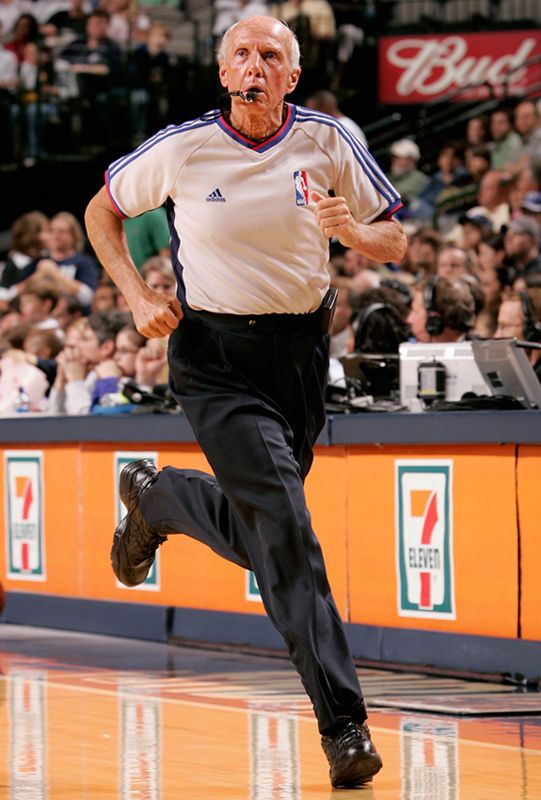 Judges are guided not only by the
Judges are guided not only by the
postulates of the prescribed rules. The referee is obliged to adhere to common sense in assessing the situation,
taking into account the mood and attitude towards the game by the teams.
It is not correct to judge professionals and beginners equally. Newcomers to the game often make many technical mistakes
. Only fixing all such errors will greatly slow down the entire
game. Fundamental principles in adjudicating rule violations are fundamental
building a holistic game.
The referee must not pause the game unless clearly necessary. Any aggression and rudeness on the
court should be stopped immediately, but the player should not be penalized with a foul for
unintentional contact, especially if it does not give any advantage in a particular game situation. The integrity and direct course of the game depends on the actions and skills of the referee.
As part of the referee team serving a professional basketball match
must include:
The referee team includes:
Chief referee and site judges.
Two or three referees
serve the game to fix errors on the court. They have fairly broad
powers. The chief referee makes significant decisions
on the compliance of equipment, equipment,
uniforms of players with the requirements of the rules. In case of serious
violations, the Chief Referee may count the defeat.
20 minutes before the start of the match, the referees begin their
duties. During the match referees
clearly adhere to the rules. The decisions of colleagues
are not questioned. The maintenance of the game
by the referees on the court is stopped by the sound of the siren.
Secretary and his assistant.
The Secretary is responsible for the correct keeping of the score sheet. Through it,
coaches submit applications for participation in the game, containing the data of
players. The maximum number of players per team cannot exceed
12 people (5 main players and 7 substitutes). Fixing
game score, interaction with teams if necessary
production of replacement or timeout, these are the main duties of the Secretary.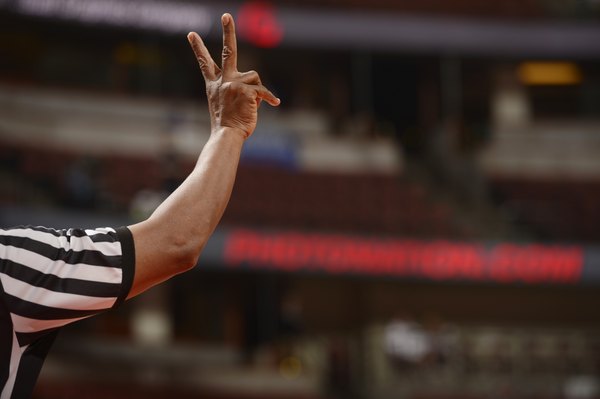
The secretary can address the referee only in a dead ball situation.
Control over the number of fouls is also the responsibility of the Secretary. He
brings this information to the judges and teams.
Timekeeper.
A timekeeper in basketball must know the referees' gestures
well and know the rules of the game. He is obliged
to turn on and stop the time on the
scoreboard in a timely manner, guided by the gestures of the referees (whistle), and
also making their own decisions on
kick-offs, called time-outs,
breaks, dropped balls or free throws. In
of the last quarter, 2 minutes before the end of
playing time, the timekeeper stops
his countdown after each effective throw.
Time operator for
throw.
The main function of the throw time operator
is to monitor the observance of the time rules of 24
seconds. It turns on the timer every time the team gets possession of the ball and turns it off at
0465 ball leaving the basketball court
.